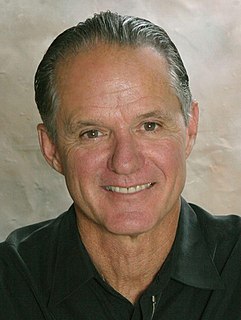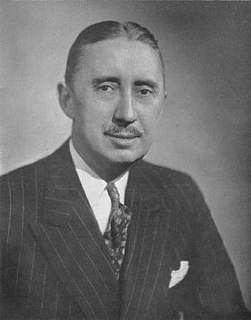A Quote by Joseph Conrad
The artist appeals to that part of our being which is not dependent on wisdom; to that in us which is a gift and not an acquisition-and therefore, more permanently enduring. He speaks to our capacity for delight and wonder, to the sense of mystery surrounding our lives; to our sense of pity, and beauty and pain.
Related Quotes
[The artist] speaks to our capacity for delight and wonder, to the sense of mystery surrounding our lives; to our sense of pity, and beauty, and pain; to the latent feeling of fellowship with all creation--and to the subtle but invincible conviction of solidarity in dreams, in joy, in sorrow, in aspirations, in illusions, in hope, in fear?which binds together all humanity--the dead to the living and the living to the unborn.
I am a man, and men are animals who tell stories. This is a gift from God, who spoke our species into being, but left the end of our story untold. That mystery is troubling to us. How could it be otherwise? Without the final part, we think, how are we to make sense of all that went before: which is to say, our lives? So we make stories of our own, in fevered and envious imitation of our Maker, hoping that we'll tell, by chance, what God left untold. And finishing our tale, come to understand why we were born.
The world that we live in is full of distractions and pleasures that pull us away from a spiritual life. Even our jobs which are a very necessary and important part of our lives can end up being the altar at which we pray. They consume most of our waking hours and provide the income on which we are dependent in order to take care of our families.
The Savior desires to save us from our inadequacies as well as our sins. Inadequacy is not the same as being sinful - we have far more control over the choice to sin than we may have over our innate capacity. . . . A sense of falling short or falling down is not only natural but essential to the mortal experience. Still, after all we can do, the Atonement can fill that which is empty, straighten our bent parts, and make strong that which is weak.
Of one thing we can be sure: our own future is inseparable from the larger community that brought us into being and which sustains us in every expression of our human quality of life, in our aesthetic and emotional sensitivities, our intellectual perceptions, our sense of the divine, as well as in our physical nourishment and bodily healing.
For the 99 percent of the time we've been on Earth, we were hunter and gatherers, our lives dependent on knowing the fine, small details of our world. Deep inside, we still have a longing to be reconnected with the nature that shaped our imagination, our language, our song and dance, our sense of the divine.
I recently got back from Hiroshima and it was fascinating to me how the Japanese accommodate this paradox. We were talking about this word aware, which on the page looks like "aware," which speaks to both the pain and the beauty of our lives. Being there, what I perceived was that this is a sorrow that is not a grief that one forgets or recovers from, but it is a burning, searing illumination of love for the delicacy and strength of our relations.
The greatest cost of the specialization of technological life - and out of which all other damages are birthed - is arguably our separation from the practical and enriching sense of ourselves as embodied beings. When we are alienated from the wisdom of the body, our lives become theoretical and abstract, and we are distanced from the direct, felt sense of living.
And we're also remembering the guiding light of our Judeo-Christian tradition. All of us here today are descendants of Abraham, Isaac, and Jacob, sons and daughters of the same God. I believe we are bound by faith in our God, by our love for family and neighborhood, by our deep desire for a more peaceful world, and by our commitment to protect the freedom which is our legacy as Americans. These values have given a renewed sense of worth to our lives. They are infusing America with confidence and optimism that many thought we had lost.
Heroes are necessary in order to enable the citizens to find their own ideals, courage and wisdom in the society. The hero carries our hopes, our aspirations, our ideals, our beliefs. In the deepest sense the hero is created by us; he or she is born collectively as our own myth. This is what makes heroism so important: it reflects our own sense of identity and from this our own heroism is molded.





































